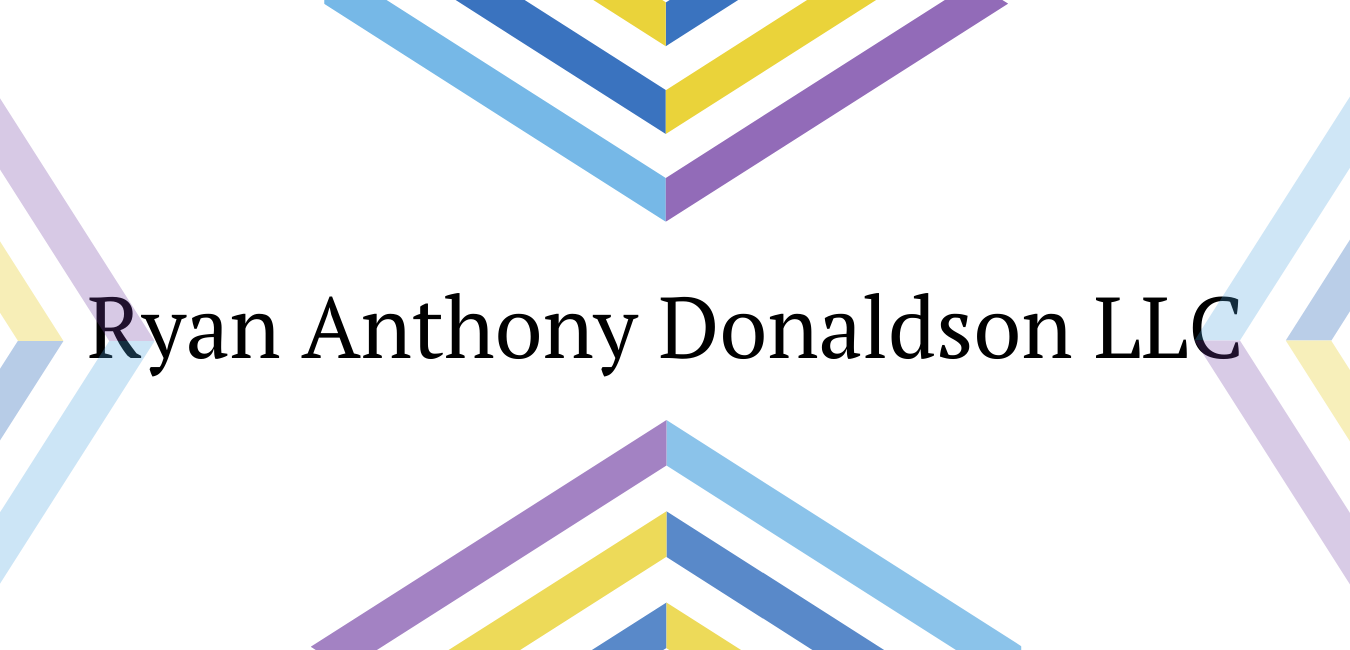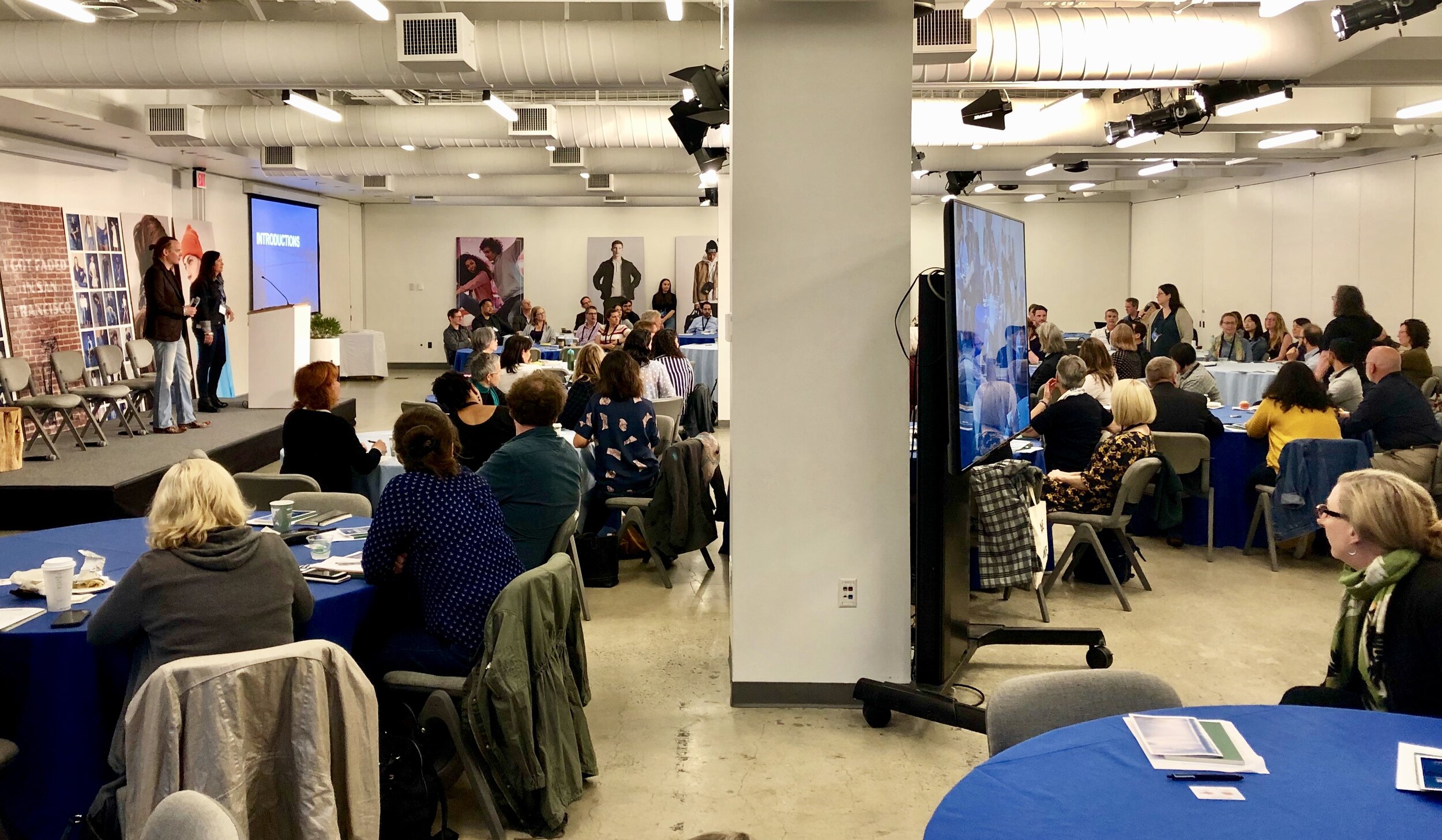ICA-SBA 2019: “Business Archives & the Next Gold Rush” Recap
This article first appeared in the Society of American Archivists Business Archives Section Quarterly (BASQ) Vol. 1 No. 4.
Attendees introduce themselves during the opening of the conference.
Over 100 participants from across the globe gathered in San Francisco, California, at the annual conference for the International Council on Archives (ICA) Section on Business Archives (SBA). The two-day program took place at the world headquarters of Levi Strauss & Co. with 36 presenters and over 120 people viewing the live webcast from Denmark, Germany, Ireland, Japan, Norway, UK, and the USA.
The first day included a keynote speech “Designing to Zero” delivered by Paul Dillinger, Levi Strauss & Co. Head of Global Product Innovation. Paul discussed how, in the span of 130 years, the garment form has not changed that much, emphasizing the consistency of Levi products. He discussed how the company purchases vintage Levi’s in the secondary market, then repairs them for resale, in opposition to “fast fashion” trends. Paul left the conference attendees feeling inspired, sharing Levi’s initiatives to measure the sustainable aspects of jean production in efforts to cut down on water usage and conserve natural resources, including the use of hemp as an alternative to cotton.
The first session, “Future Trends: New Models in Technology Business Archives,” focused on strategies and approaches archivists take to document company heritage in the technology sector, an industry primarily concerned with moving ahead and the future. Among the panelists were: Paula Jabloner and Stephanie Waslohn (Center for Cisco Heritage @ the Computer History Museum), Pennington Ahlstrand (Computer History Museum), and Michele Winn, (Archives Consultant & Project Manager).
The second session, “Gold Standards: Engaging Your Community,” looked to three examples of organizational archives, from performing arts to the food & beverage industries. In each example, creative methods to engage with a range of communities were implemented, from commemorating milestones to creating a hybrid archives storage/event space to implementing a mobile exhibit to engage staff and customers. The panelists included: Barbara Rominski (San Francisco Opera), Demelza van der Maas (Heineken Heritage Collection), and Martha Lawrence (Chick-fil-A, Inc.).
Tracey Panek introduces the panel for the third session.
The third session was an operational excellence activity with a panel that included Linda Edgerly (The Winthrop Group), Sarah Polirer (Cigna), and Tim Schantz (History Factory). After the panel took some time to define and characterize operational excellence, participants organized into groups to discuss methods for compiling milestones, organizational timelines, and tracking metrics, such as reference requests. The importance of aligning with senior leadership was highlighted, along with understanding your internal and external audiences.
The fourth session, “Harnessing New Technology,” featured speakers representing the financial, automotive, and pharmaceutical industries that dovetailed with the prior group activity. Discussion topics included the importance of considering a range of factors prior to onboarding a new technology, as well as collecting data for measurement and evaluation that can be utilized graphically, which can be very helpful in justifying and building upon the technology investment. Additional considerations included how to harness your company’s corporate heritage site to become sources in Wikipedia, providing more accuracy and control in communicating your brand’s history. Speakers included Anne Hall (Federal Reserve Bank of San Francisco), Cat Saleeby McDowell (GSK Heritage), and Fred Jakobs (BMW AG).
The fifth and final session of day 1, “Gold Standards: Positioning Your Archives,” was set up as a discussion moderated by Anders Sjöman (Centre for Business History) and provided practical advice on how to make a positive and memorable impact within your institution. Among the takeaways were the importance of building a strong reputation within the company, managing expectations, gaining quick wins, aiming for organization-wide impact, and creatively searching throughout the org chart for collaborators, including the custodial staff. The panelists were Lovisa Severin Kragerud (The Absolut Company – Pernod Ricard), Paul Lasewicz, (McKinsey & Company), and Ted Ryan (Ford Motor Company).
Conference attendees at an exclusive tour of the exhibition space at the Society of California Pioneers in the San Francisco Presidio.
After the sessions ended, conference attendees were treated to an evening at the Society of California Pioneers in the San Francisco Presidio, providing an opportunity to hear from Society staff and have an exclusive look at the exhibit Her Side of the Story.
Jamie Martin introduces keynote speaker Sandeep Gopisetty.
Day two of the conference opened with a keynote on the future of computing by Sandeep Gopisetty, Director of Enterprise AI, Systems & Solutions Research, and an IBM Research Distinguished Engineer, IBM Research – Almaden. Sandeep provided an illuminating history of artificial intelligence (AI), including IBM milestones such as the development of an AI system to play checkers in 1959. He emphasized how specialized AI can translate languages, transcribe speech, and provide visual recognition. Sandeep ended the keynote by suggesting some possibilities to engage with the hybrid cloud to support the work of archivists.
After the keynote, the sixth session, “Leveraging Data in Entertainment Archives,” discussed how archivists establish and optimize digital asset management systems in the context of film, television, and video game production. From extracting data to be cleaned up to migrating to a new DAM system, the panelists discussed some of the challenges and opportunities inherent to these activities, along with providing access to the content. Moderated by Sharon Dovas (Pixar Animation Studios), the panelists included Lauren Gaylord (Pixar Animation Studios), Tim Mapp, (Lucasfilm), Sharon Mizota (Walt Disney Animation Research Library), and Nikki Nguyen (Walt Disney Archives).
Aubrey Carrier from the Wells Fargo Corporate Archives describes the evolution of the company’s oral history program, which includes employees and customers.
As the title suggests, the seventh session, “Mix It Up,” incorporated a range of topics, covering oral history, heritage branding, audio-visual digitization, expediting processing methods and more. Among the panelists were Aubrey Carrier (Wells Fargo Corporate Archives), Carol Quinn (Irish Distillers – Pernod Ricard), Emily Cottle (Vanguard), Kiara King (The Ballast Trust), Paul Grippaldi (Digital Revolution), and Scott Grimwood (SSM Health).
As a way to look ahead, the eighth session, “The Future Trends in Business Archives Panel Discussion,” included forecasts of what to anticipate, from AI to shifts in gatekeepers and custodians of digital content. In all cases, comparing resources to your organization’s capabilities and roadmap is critical. Panelists included Franziska Eggimann (Georg Fischer Ltd and Iron Library Foundation), Glynn Edwards (Stanford University Libraries, Special Collections & Archives, ePADD), and Ryan Donegan (Heritage Werks).
The final session, “Gold Standards: Demonstrating Your Relevance,” examined three case studies on how corporate archives can become embedded within a company, from embarking on new programs such as an annual lecture series, collaborations with artists-in-residence, to capitalizing on relocating the archives for enhanced presence and creating pop-up and traveling exhibits. This session included Natalie Lorenz, (Swarovski), Vrunda Pathare (Godrej Archives), and Erin Narloch (Reebok Brand Archive).
Wrapping up the conference, attendees were invited to tour Wells Fargo’s flagship Museum and archives. The museum included exhibits and interactives that told the story of the company from the Gold Rush beginnings to Silicon Valley today, prominently featuring artifacts and reproductions from Wells Fargo’s archives.
Conference attendees enjoy a tour of the Wells Fargo Museum, as well as a visit to the Wells Fargo’s archives led by their corporate archives team.
If you were unable to join the conference, or if you attended and would like to review, full video of the conference proceedings is available at: https://levis.brand.live/business-archives-2019. Thank you to the conference planning committee, especially Tracey Panek, the event sponsors, and all the volunteers who organized an insightful, efficiently executed, and essential conference for the international business archives community.
All photographs courtesy Ryan Anthony Donaldson.






